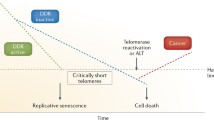Abstract
The most common type of urinary bladder cancer is called as transitional cell carcinoma. The major risk factors for bladder cancer are environmental, tobacco smoking, exposure to toxic industrial chemicals and gases, bladder inflammation due to microbial and parasitic infections, as well as some adverse side-effects of medications. The genetic mutations in some chromosomal genes, such as FGFR3, RB1, HRAS, TP53, TSC1, and others, occur which form tumors in the urinary bladder. These genes play an important role in the regulation of cell division which prevents cells from dividing too quickly. The changes in the genes of human chromosome 9 are usually responsible for tumor in bladder cancer, but the genetic mutation of chromosome 22 can also result in bladder cancer. The identification of p53 gene mutation has been studied at NIH, Washington, DC, USA, in urine samples of bladder cancer patients. The invasive bladder cancers were determined for the presence of gene mutations on p53 suppressor gene. The 18 different bladder tumors were evaluated, and 11 (61 %) had genetic mutations of p53 gene. The bladder cancer studies have suggested that 70 % of bladder cancers involve a specific mutation in a particular gene, namely telomerase reverse transcriptase (TERT) gene. The TERT gene is involved in DNA protection, cellular aging processes, and cancer. The Urothelial carcinomas of the bladder have been described in Atlas of genetics and cytogenetics in oncology and hematology. HRAS is a proto-oncogene and has potential to cause cancer in several organs including the bladder. The TSC1 c. 1907 1908 del (E636fs) mutation in bladder cancer suggests that the location of the mutation is Exon 15 with frequency of TSC1 mutation of 11.7 %. The recent findings of BAP1 mutations have shown that it contributes to BRCA pathway alterations in bladder cancer. The discoveries of more gene mutations and new biomarkers and polymerase chain reaction bioassays for gene mutations in bladder cancer need further research.
Similar content being viewed by others
References
www.GeneticsHomeReference (2015). Bladder cancer. Washington, USA: NIH.
Science www.sciencemag.org. Sidransky, D., von Eschenbach, A., Tsai, Y. C., Jones, P., Summerhayes, I. Marshall, F., Paul, M., Green, P, Hamilton, S. R., Frost, P. et al. (1991). Identification of p53 gene mutations in bladder cancers and urine samples. Science, 252(5006): 706–709.
www.Bladdercancer Website. (2015). p53 Mutations in bladder cancer.
Cordon-Cardo, C., Dalbagni, G., Saez, G. T., Oliva, M. R., Zhang, Z. F., Rosai, J., et al. (2013). Human cancer. p53 mutations in human bladder cancer: Genotypic versus phenotypic patterns. International Journal of Cancer, 56(3), 347–353.
Real, F. X. (2013). 70 % of bladder cancers involve a specific mutation in a particular gene. Pompeu Fabra University, Barcelona, Spain, Sept, 19, 2013. (Eur.Urol. 9/2013).
Cancer Genetics. Web www.cancergenetics.org. (2015). Bladder cancer. Molecular biology.
Wikipedia. www.wikipedia.freeencyclopedia. Html. HRAS, 2015.
Solit, D. TSC1 c.1907_1908del (E636fs) (2013). Mutation in bladder cancer. My cancer genome http://www.mycancergenome.org/content/disease/bladder-cancer/tsc1/237/. Updated 12 Feb 2013.
www.CreativeBiomart.(2015). Bladder cancer-related gene mutation was identified. html, NY.
www.Bladder: Urothelial carcinomas. (2015). Atlas of genetics and cytogenetics in oncology and haematology.
www.BGI. Stay Connected. Html. (2011). Chinese scientists report research discovers frequent mutations of chromatin remodeling genes in TCC of the bladder, BGI. Shenzhen, China: Peking University.
www.AACR. (2014). American Association for Cancer Research. Bladder cancer patient with rare genetic mutations shows exceptional response to everolimus.
www.QIAGEN. (2015). Bladder cancer mutation PCR array. Human: qBiomaker somatic mutation PCR array: Human blood cancer.
www.NationalCancerInstitute, Washington, DC, USA. (2014, 2015). Investigating genetic alterations in bladder cancer. 2014, 2015.
Nickerson, M. L., Dancik, G. M., Im, K. M., Edwards, M. G., Turan, S., Brown, J. et al. (2014). Concurrent alterations in TERT, KDM6A, and the BRCA pathway in bladder cancer (Pub Med Link). Clinical Cancer Research; (Sept):15.
Netto, G. J. (2012). Molecular biomarkers in urothelial carcinoma of the bladder: Are we there yet? Review. Nature Reviews Urology, 9, 41–51. Published online 13 Dec 2011.
Author information
Authors and Affiliations
Corresponding author
Rights and permissions
About this article
Cite this article
Zhang, X., Zhang, Y. Bladder Cancer and Genetic Mutations. Cell Biochem Biophys 73, 65–69 (2015). https://doi.org/10.1007/s12013-015-0574-z
Published:
Issue Date:
DOI: https://doi.org/10.1007/s12013-015-0574-z




